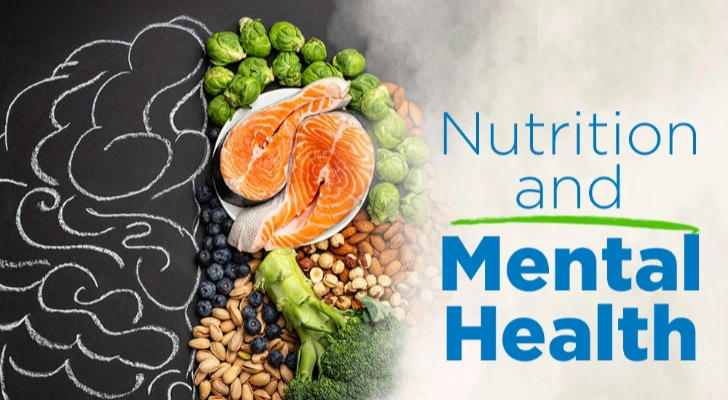Healthy Living: Small Changes, Big Impact
Living a healthy life doesn’t mean you have to run marathons, eat kale every day, or give up all your favorite treats. It’s about making small, sustainable changes that add up over time. Whether you’re looking to boost your energy, improve your mood, or just feel better in your own skin, a healthy lifestyle is within reach. Let’s break it down and focus on two key areas: nutrition and mental health. These are often the biggest pain points for people, but with a few practical tips, you can start making a difference today.

1. Nutrition: You Are What You Eat (But It Doesn’t Have to Be Perfect)
Food is fuel, and what you put into your body directly impacts how you feel and function. But with so much conflicting advice out there, it’s easy to feel overwhelmed. Let’s simplify it.
The Problem: Poor Diets Are Everywhere
The modern diet is packed with processed foods, sugar, and unhealthy fats. According to the Centers for Disease Control and Prevention (CDC), only 1 in 10 adults in the U.S. eats enough fruits and vegetables. This isn’t just about weight—it’s about energy, focus, and long-term health.
- The Sugar Trap: The average American consumes 17 teaspoons of added sugar per day, far above the recommended limit of 6 teaspoons for women and 9 for men. Excess sugar is linked to obesity, diabetes, and heart disease.

- The Convenience Factor: Busy schedules often lead to fast food or pre-packaged meals, which are typically high in sodium, unhealthy fats, and empty calories.
The Solution: Small, Sustainable Changes
You don’t need to overhaul your diet overnight. Start with these simple steps:
Add, Don’t Subtract: Instead of cutting out your favorite snacks, add more whole foods to your diet. For example, pair a handful of nuts with your afternoon candy bar or add spinach to your morning smoothie.
Plan Ahead: Spend 10 minutes on Sunday planning your meals for the week. This can help you avoid last-minute fast food runs.
Hydrate: Often, we mistake thirst for hunger. Aim to drink at least 8 cups of water a day. If plain water feels boring, try adding lemon or cucumber for flavor.
Fun Fact: A study published in the Journal of Nutrition found that people who ate at least 5 servings of fruits and vegetables daily reported higher levels of happiness and life satisfaction.
2. Mental Health: Your Brain Needs Love Too
Mental health is just as important as physical health, yet it’s often overlooked. Stress, anxiety, and burnout are on the rise, but there are ways to protect your mental well-being.
The Problem: Stress is Everywhere
The American Psychological Association (APA) reports that 75% of adults experienced moderate to high levels of stress in the past month. Chronic stress can lead to serious health issues, including heart disease, depression, and a weakened immune system.
- The Social Media Effect: Constant scrolling can take a toll on mental health. A 2023 study by the University of Pennsylvania found that limiting social media use to 30 minutes a day significantly reduced feelings of loneliness and depression.

- The Sleep Crisis: Poor sleep is both a cause and a symptom of mental health struggles. The CDC states that 1 in 3 adults doesn’t get enough sleep, which can worsen stress and anxiety.
The Solution: Prioritize Your Peace
Here are some actionable steps to improve your mental health:
Set Boundaries: Learn to say no. Overcommitting yourself can lead to burnout. It’s okay to prioritize your well-being.
Move Your Body: Exercise isn’t just for physical health—it’s a powerful mood booster. Even a 20-minute walk can reduce stress and improve your outlook.
Practice Mindfulness: Spend 5 minutes a day focusing on your breath or practicing gratitude. Apps like Calm or Headspace can guide you if you’re new to mindfulness.
Fun Fact: A Harvard study found that people who practiced mindfulness meditation for just 8 weeks experienced a reduction in anxiety and an increase in gray matter in the brain, which is linked to emotional regulation.

3. The Connection Between Nutrition and Mental Health
What you eat doesn’t just affect your body—it affects your brain too. Research shows a strong link between diet and mental health.
The Gut-Brain Axis: Your gut and brain are connected through a network of nerves and chemicals. A healthy gut can improve mood and reduce anxiety. Foods like yogurt, kefir, and sauerkraut are great for gut health.
Brain-Boosting Foods: Omega-3 fatty acids, found in fatty fish like salmon, can improve brain function and reduce symptoms of depression. Dark chocolate (in moderation) is another mood-boosting option.
Practical Tip: Try incorporating one brain-boosting food into your diet each week. For example, swap out your afternoon chips for a handful of walnuts or a piece of dark chocolate.
4. The Role of Community in Healthy Living
Healthy living isn’t just about individual choices—it’s also about the people around you. A strong support system can make all the difference.
Accountability Partners: Whether it’s a workout buddy or a friend who shares healthy recipes, having someone to cheer you on can keep you motivated.
Social Connections: Loneliness can negatively impact both physical and mental health. Make time for meaningful connections, whether it’s a weekly phone call with a friend or joining a local club.
Fun Fact: A study by Brigham Young University found that people with strong social connections had a 50% higher chance of longevity compared to those with weaker ties.
5. The Future of Healthy Living: Trends to Watch
As we look ahead, several trends are shaping the future of healthy living:
Personalized Nutrition: Advances in technology are making it easier to tailor diets to individual needs. DNA testing and gut microbiome analysis can provide insights into what foods work best for you.
Mental Health Tech: Apps and wearable devices are helping people track and improve their mental health. From mood tracking to guided meditation, technology is making mental health care more accessible.
Holistic Health: More people are embracing a holistic approach to health, focusing on the connection between mind, body, and spirit. Practices like yoga, acupuncture, and aromatherapy are gaining popularity.
Conclusion: Start Small, Think Big
Healthy living doesn’t have to be complicated or overwhelming. By focusing on small, sustainable changes—like adding more fruits and veggies to your diet, setting boundaries to reduce stress, and building a supportive community—you can create a healthier, happier life. Remember, it’s not about perfection; it’s about progress. As the saying goes, “Health is not about the weight you lose, but the life you gain.” So take that first step today, and watch how small changes can lead to big results.
